Originally published December 25, 2010 at 5:20 PM | Page modified December 25, 2010 at 7:13 PM
![]() Comments (0)
Comments (0)
![]() E-mail article
E-mail article
![]() Print
Print
![]() Share
Share
Training, new rules meant to reduce abuse at adult family homes
In the wake of a yearlong Seattle Times investigation that detailed widespread problems in the adult-home industry, the state has improved training for home owners, made violation reports more accessible to the public and started reporting all abuse and neglect cases to law enforcement.
Seattle Times staff reporter
ALAN BERNER / THE SEATTLE TIMES
Julie Henry hears how to select seniors whose needs match what a home can provide during a class for prospective adult family home owners.
ALAN BERNER / THE SEATTLE TIMES
Learning the trade: These prospective adult family home owners take a class at Highline Community College taught by Jan Thomson, an RN and former DSHS inspector, and adult family home owner Dorothy Schlimme.
Checklist for choosing an adult family home
Here are the steps to check the quality of an adult family home:Check the enforcement history
Recent enforcement actions can be found at the Department of Social and Health Services website www.aasa.dshs.wa.gov/lookup/
AFHRequestv3.asp or call a DSHS regional office: King County: 253-234-6001; Kitsap, Pierce counties: 253-983-3849; Island, San Juan, Skagit, Snohomish, Whatcom counties: 360-651-6850.
Does the owner live in the home? Who actually provides care?
Many owners do not live in their adult home but employ a manager to oversee day-to-day care. It's important to meet the actual caregivers and ask about their training and qualifications.
What are the scheduled activities?
Access to daily activities is important for active seniors. Does the home provide transportation to stores or recreation? Does it schedule activities such as exercise classes and games?
What are the staffing levels?
Staffing is a critical measure of good care. Determine whether the home has 24-hour staffing. If not, how does a disabled or bedridden resident get to a restroom at night? How does a resident summon help at night?
Conduct unscheduled tours
Visit on a normal day and observe how many staffers are present. Is the refrigerator stocked with healthful foods? Do residents appear happy?
Ask for references
Collect information from families of former residents.
Getting help
Report abuse: To report abuse of any vulnerable adult or child, call the 24-hour EndHarm hotline, 866-363-4276. You will speak with a real person who will connect you to a direct, local number to make your report.Call Complaint Resolution: Call a toll-free hotline at 800-562-6078 if the person you suspect of being abused or neglected is living in a nursing home, boarding home or adult family home.
In an emergency: If the person is in immediate danger, call police.
![]()
Jay Tilberg, a 51-year-old former construction worker, found himself in a Highline Community College classroom last month, hoping to launch a new career. With no previous health-care experience, he and 10 others, some unemployed, were learning how to turn their private residences into state-licensed adult family homes for the elderly.
"This class is the first step of my journey," said Tilberg, who learned about such homes when helping his grandmother find long-term care.
But at the blackboard, Dorothy Schlimme, a seasoned owner of an Auburn adult home, knew the grim reality: for every four homes that opened, three others failed — many due to ill-trained, inexperienced owners with dreams of easy money.
"Don't be afraid to say no," Schlimme told the class. "You have to pick the right residents."
This 48-hour training course, the state's first at a community college, is just one of many reforms launched this year in the wake of a Seattle Times investigation, "Seniors for Sale," which detailed systemic problems in the adult family home industry.
The Times found that the elderly have been exploited by get-rich-quick profiteers, harmed by untrained caregivers, and ignored by the state even after some died of apparent neglect. Owners even listed elderly residents as commodities in the sales ads for such homes.
The state excused abuse and neglect by owners even when it knew they had lied to investigators, provided falsified medical records or contributed to preventable deaths, The Times found.
Officials at the Washington Department of Social and Health Services, which regulates adult family homes, since have overhauled key programs.
• Adult-home owners now must publicly post state violations they've received so residents and their families can view them.
• Also for the first time, DSHS posts all enforcement actions on its website, which allows the public to more quickly gauge the quality of adult homes.
• DSHS officials now report all cases of suspected abuse and neglect in King County to law enforcement, part of a pilot program launched last month. The Times reported in September that since 2003 at least 236 suspicious deaths in adult homes were never investigated.
"There have been a lot of changes this year that will make this industry better, more accountable and better trained," said Cindi Laws, executive director of the Washington State Residential Care Council, which represents the state's 2,975 adult homes.
Laws said most adult homes provide quality care. Even so, Laws is spearheading a "quick-response team" of experienced home owners who will visit problem homes, provide training and help to correct deficiencies.
"This is a 24/7 kind of business," Laws said. "Not everyone can do it. We hope this will help more good homes stay in business."
Other changes and developments include:
Proposed fee increase
DSHS is expected to sponsor legislation in January that raises the initial license fee for adult homes to at least $1,000 from $100.
The current fee is too low, DSHS officials say, and subsidizes about 4 percent of oversight costs. State law requires license fees to substantially cover enforcement expenses.
DSHS said a fee increase is needed so it can continue to inspect adult homes at least once every 18 months. The higher fee will also serve to slow the growth of the industry. The number of adult family homes statewide increases by about 100 each year.
The fee increase is supported by a 41-member task force created this year by Gov. Chris Gregoire in response to The Times' findings. The adult-home industry opposes the increase.
Training delayed
In 2008, Washington voters passed I-1029, saying yes to enhanced training and licensing requirements for those who care for vulnerable adults.
But the state's dismal budget outlook has put the measure on hold — again.
The initiative, passed by the widest margin of any initiative in state history, requires long-term-care workers to complete 75 hours of training, including passing a test. The program is estimated to cost the state about $30 million. Most caregivers already must have 34 to 48 hours of training.
But Gregoire proposed this month to delay the training program, scheduled to start in January, until 2012. Legislators will vote on the governor's recommendation in January.
Finally, a home
Last year, Jeri Ringseth, an impoverished diabetic whose legs had been amputated below the knee, was steered by DSHS to a Tacoma adult home. But its owner was unprepared to deal with her problems, which included psychiatric ones. The adult- home owner eventually abandoned Ringseth, 41, at St. Joseph Medical Center in Tacoma in November 2009. Ringseth lived in the hospital for nearly a year while hospital officials sought to find a suitable home.
The Times this year profiled Ringseth, 41, as one of thousands of low-income patients on Medicaid who have languished in expensive hospital rooms for week or months because nursing homes or adult homes are unwilling to take them in.
Ringseth lived at the hospital for 342 days until a different Tacoma adult-home owner agreed to take her in. Ringseth has experienced no problems.
"I love it here," she said.
Serious business
The Washington State ombudsman program receives hundreds of complaints every year about adult family homes. Many center on inadequately trained owners and caregivers.
State ombudsman Louise Ryan received a federal stimulus grant which was used, in part, to underwrite the 48-hour training class at Highline Community College. Ryan's goal is to put adult-home training into college classrooms.
The Times reported earlier this year that previous training efforts through DSHS were marred by serious flaws.
DSHS subcontracts training to independent businesses that develop their own curriculums and fees. In the past, instructors sometimes conducted shoddy training at pizza and coffee shops, state records show.
The Times also found that more than 200 adult-home owners were certified without taking required training — some merely paid for a certificate.
DSHS officials said they plan to overhaul the training program.
Jan Thomson, a former DSHS inspector, assisted Schlimme at the Highline classroom last month. "This is about protecting seniors," she said. "We're teaching new owners that this is a serious commitment. If you don't know what you're doing, if you make a mistake, it can claim a life."
Jay Tilberg got the message. "You start out thinking it will be easy to open a business and make money," he said. "But the training class opened my eyes. I have a lot to learn before I open my home next year."
Michael J. Berens: mberens@seattletimes.com or 206-464-2288
UPDATE - 09:46 AM
Exxon Mobil wins ruling in Alaska oil spill case
NEW - 7:51 AM
Longview man says he was tortured with hot knife
Longview man says he was tortured with hot knife
Longview mill spills bleach into Columbia River
NEW - 8:00 AM
More extensive TSA searches in Sea-Tac Airport rattle some travelers

general classifieds
Garage & estate salesFurniture & home furnishings
Electronics
just listed
More listings
POST A FREE LISTING


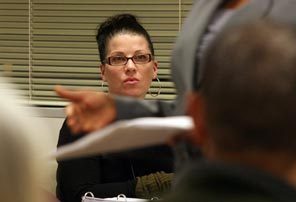
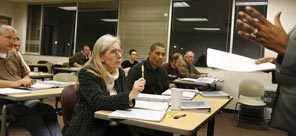
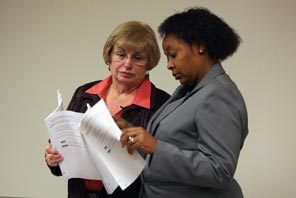
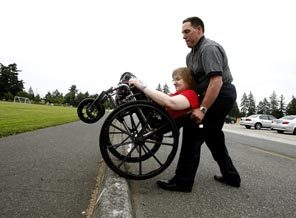
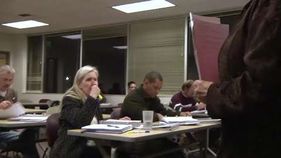


News where, when and how you want it
All newsletters Privacy statement